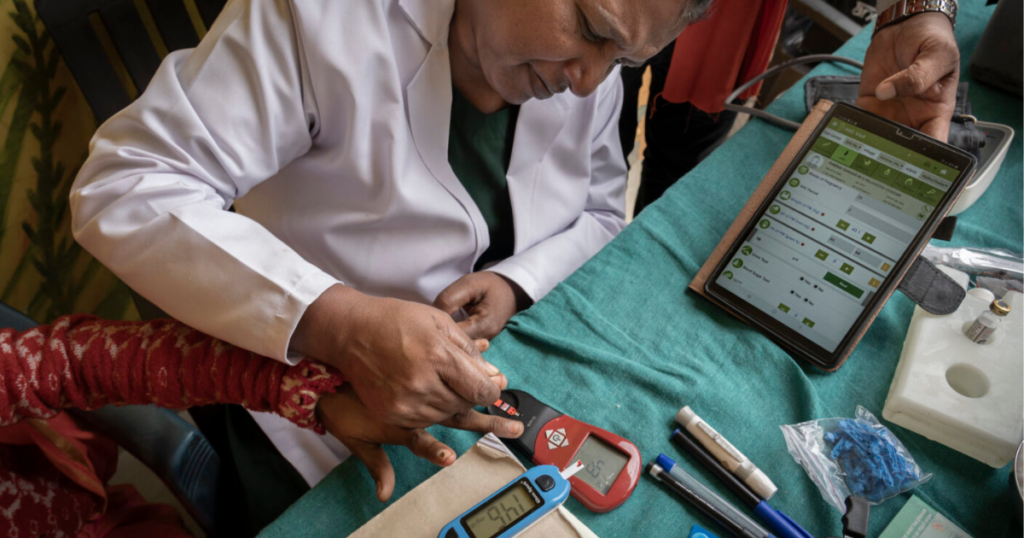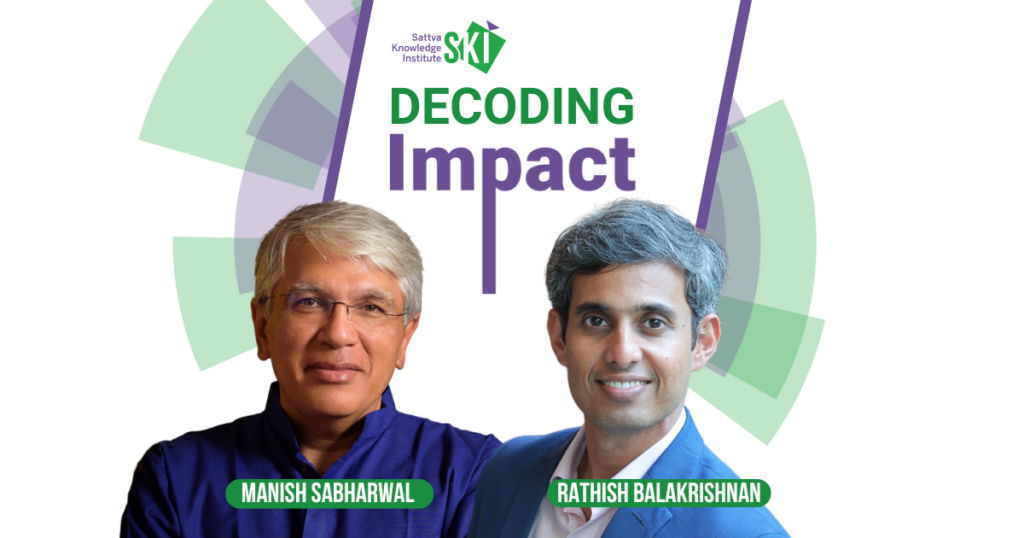Perinatal and postpartum depression occurs as a result of an interplay of individual, sociocultural and economic factors and manifests itself in the form of low mood, lack of interest, anxiety, sleeping and eating difficulties, and difficulty coping with day-to-day tasks, to name a few (National Institute of Mental Health n.d. a). Despite its high prevalence, this type of depression remains largely underdiagnosed and untreated in India due to limited awareness, lack of standardised tools and guidelines, and sociocultural taboos surrounding maternal mental health.
Maternal and newborn health programmes in India have shown success, especially at the primary health care level, and the health system has been effective in expanding the coverage of antenatal and postnatal care for mothers throughout the country. Since the maternal and newborn health systems are well-established and have multiple points of interaction with expectant, pregnant and new mothers, there lies an opportunity to integrate maternal mental health within the existing maternal and newborn health systems.
Primary research into the various cadres of health providers in public and private sectors, highlights the great need and high willingness to integrate maternal mental health care. 99% of respondents agree that it is important to integrate mental health care into existing maternal and newborn health services. Nearly 90% of providers routinely screen mothers for depressive symptoms, and almost all providers stated the use of informal practices to screen and counsel mothers in the absence of standardised tools and guidelines. Only 21% of providers encountered a large number of families with awareness about maternal depression and a majority of families are rarely aware. Training and upskilling of existing cadres in the provision of mental health care emerged as the most prominent recommendation, with 92% of respondents expressing a willingness to receive training.
Early interventions in India addressing maternal mental health by NGOs and select state governments show promise. At a broader systemic level, policy prioritisation is critical to creating enabling systems and driving action. This can be done by policy recognition and integration of maternal mental health in new and existing policies and initiatives, standardisation of processes and tools, strengthening of systems for mental health and referrals, and capacity-building of the health workforce. Stakeholders can play a role in the integration of perinatal and postpartum depression into existing maternal and newborn health systems in two ways: i) They can generate evidence to inform action, and; ii) enable policy reform, capacity-building across the continuum of care, and prioritisation of maternal mental health within existing and new interventions, especially at a primary healthcare level. In this regard, philanthropy has a catalytic role in driving ecosystem priorities towards maternal mental health, across the spectrum of practitioners, researchers and solution providers.
Authors: Yashasvi Murali and Disha Kouli, with support from Karthika Kumar
Technical review: Lakshmi Sethuraman




